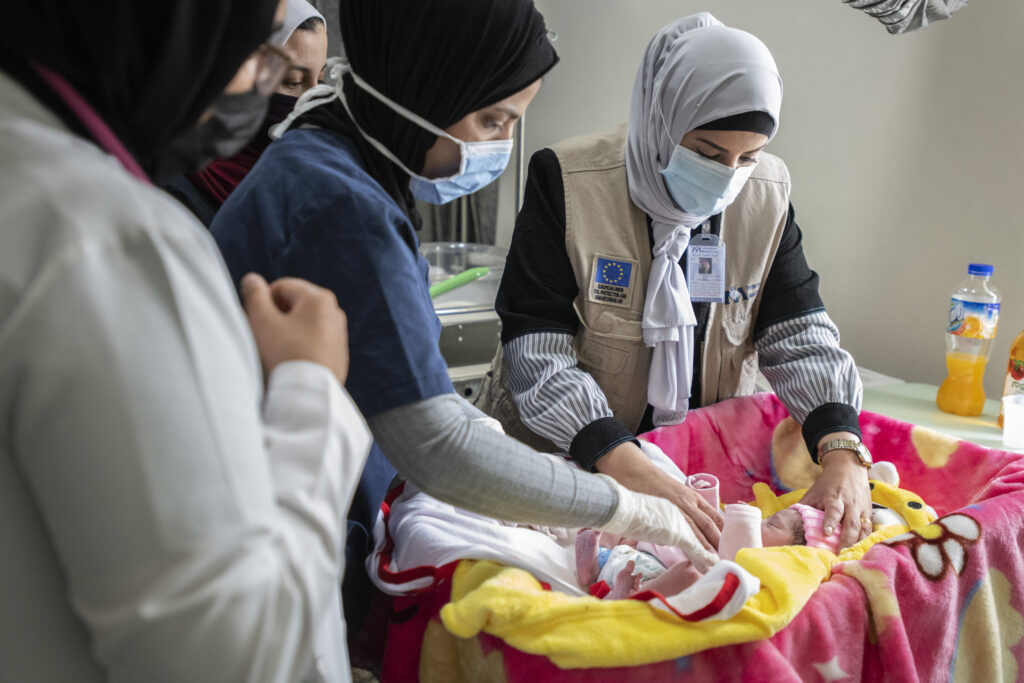Since the 1947–49 Palestine war, Jordan has been a refuge for those fleeing from wars in the region. In the past 10 years, the country has welcomed more than 1 million refugees. The vast majority of them are from Syria, joining an already substantial refugee community made up of Palestinians, Iraqis and a smaller number of African refugees. There are currently 660,000 registered Syrian refugees in Jordan, though the actual number is potentially twice as high.
Did you know that the overwhelming majority of refugees who have fled and survived war, persecution or disasters don’t live in camps, but in and around cities? In fact, more than 80% of Syrian refugees in Jordan live in urban areas, with 136,498 of them living in Irbid, a city in northern Jordan close to the Syrian border where they live autonomously but face challenges securing an income, affordable housing—and healthcare. Put differently, they are just trying to make ends meet, not unlike the communities that host them. Though the situation in Jordan isn’t rare, the brutal reality for most refugees is that about 70% live below the poverty line.
Against this backdrop, International Medical Corps is working hard to ensure that refugees and other displaced communities can access healthcare. Though we operate in Jordan’s main refugee camps, we also support urban refugees and believe it’s crucial to raise awareness about these lesser-known but equally common refugee lives.
Since September 2018, International Medical Corps has been running a maternity ward in Irbid. In this city close to the Syrian border, we serve one of the biggest urban refugee populations in the country. This article steps inside the ward and introduces the midwives, nurses and doctors who care for refugee mothers as they give birth—and are given a haven in the middle of a raging global pandemic.
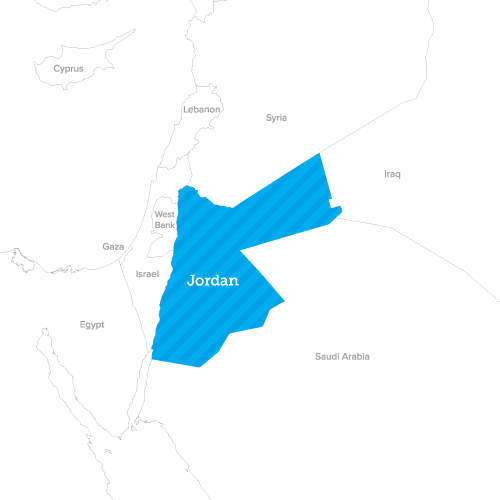
The Maternal Ward: Safe Motherhood to Refugee Mothers
Refugees living in urban areas face similar, often greater, hardship than those living in camps. Our clinic in Irbid is trying to change that.
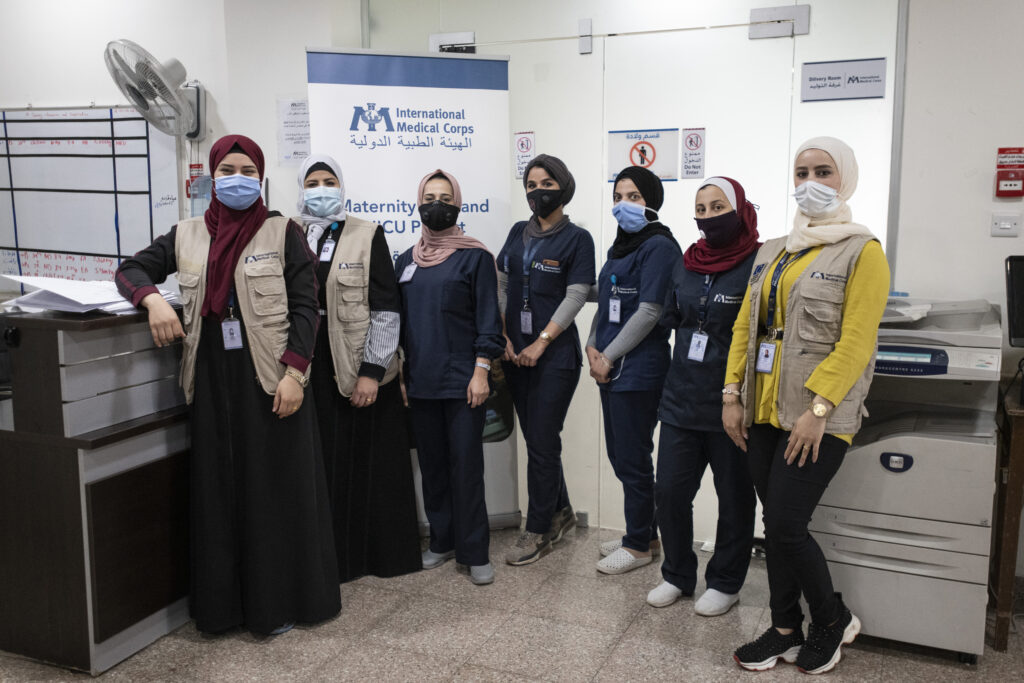
Most of Jordan’s refugee population rely on aid organizations like International Medical Corps to access basic healthcare services for free, without demanding citizenship, residence permit, insurance or the capacity to pay. Pregnancy and childbirth services are no exception.
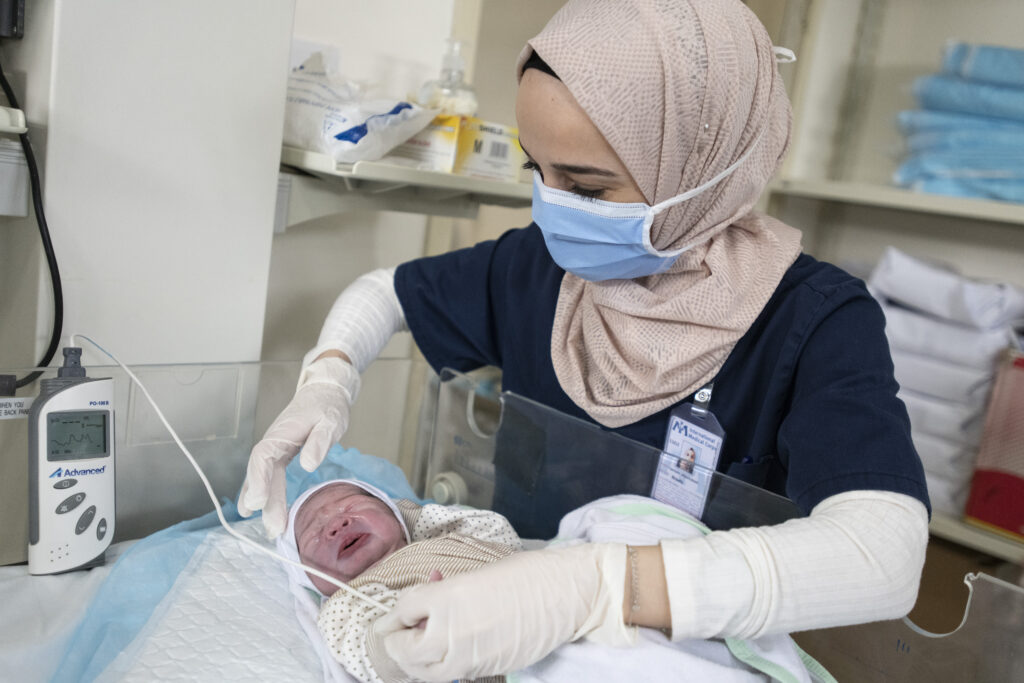
According to one study by the WHO, refugees and migrants suffer increased pregnancy-related risks and outcomes.
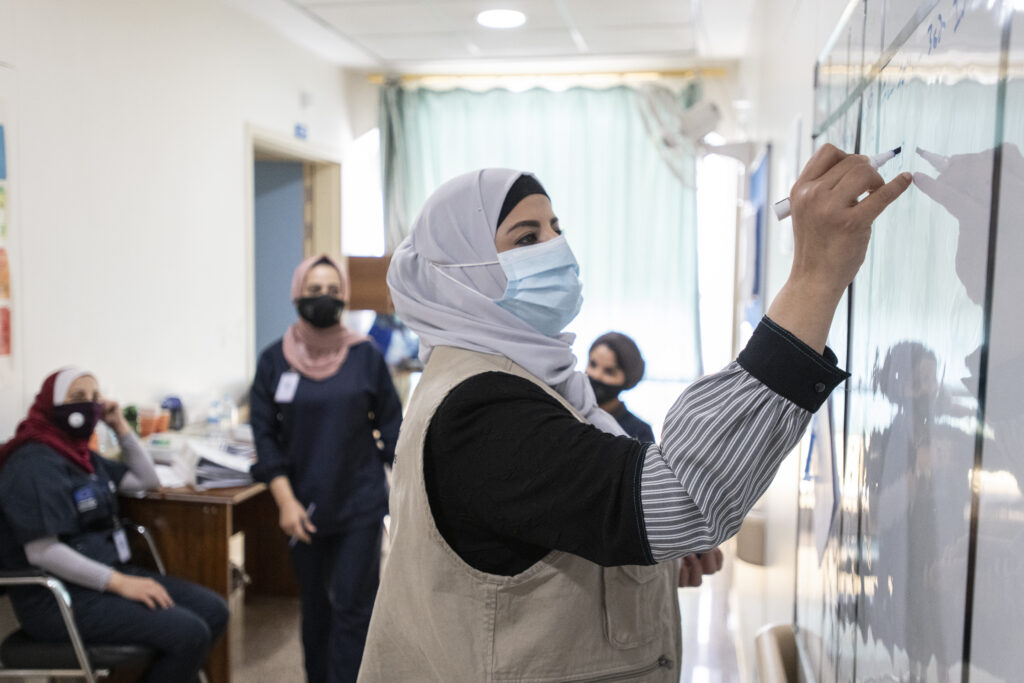
With the right training, midwives could avert more than 80% of all pregnancy-related deaths, including stillbirths and maternal and neonatal deaths.
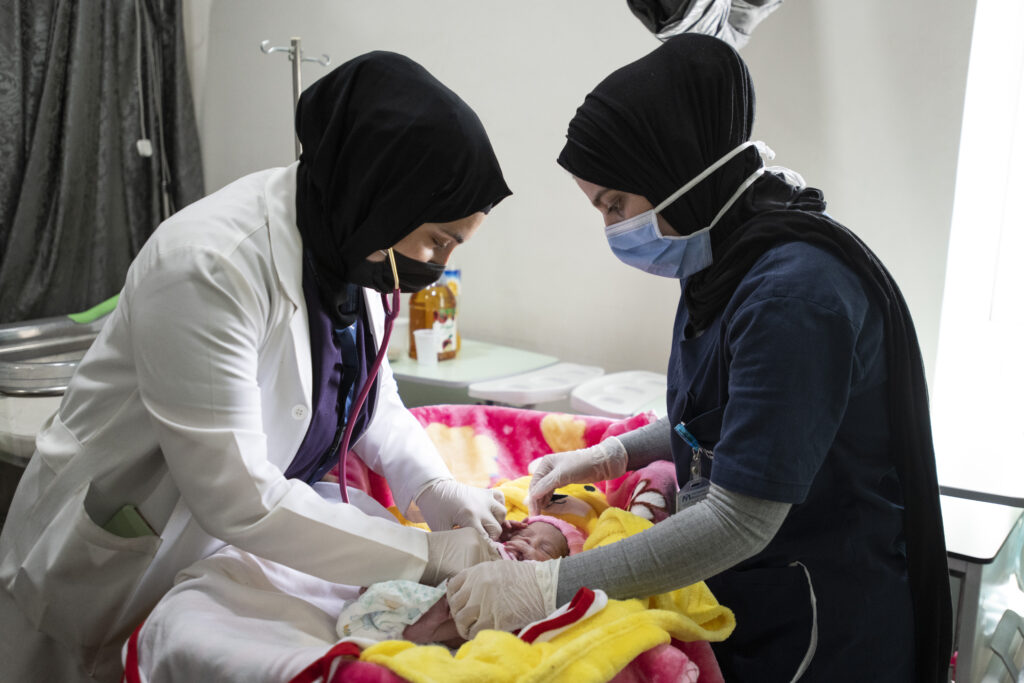
More than 8,000 successful deliveries have so far taken place at the hospital.
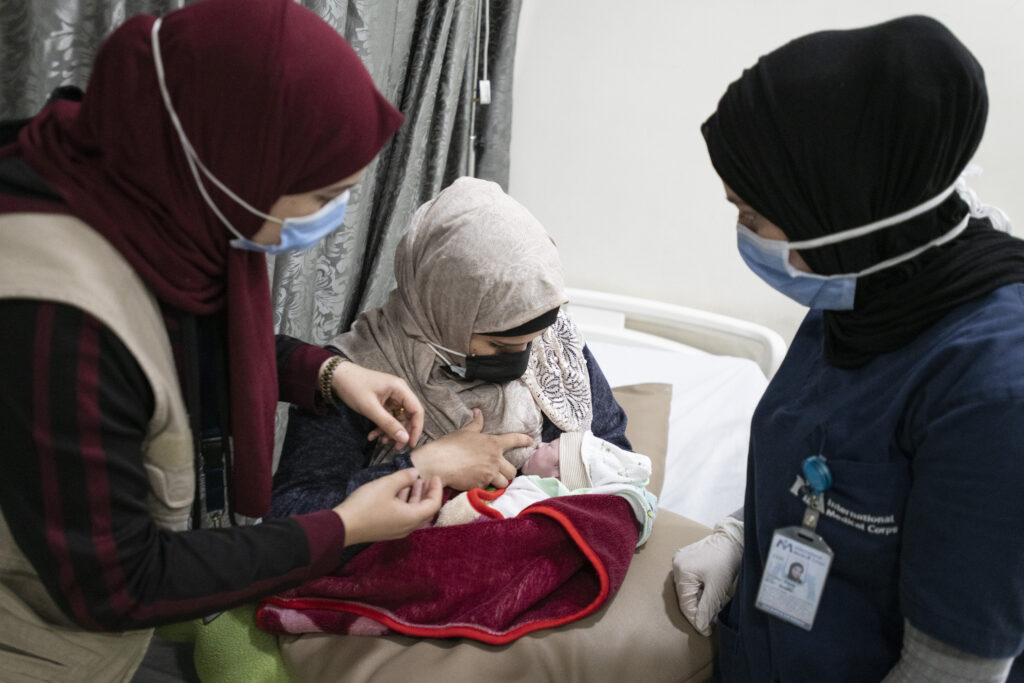
Isra’a, a new mother, is learning how to breastfeed her baby. It’s crucial to raise awareness about sexual and reproductive health among pregnant and lactating women.
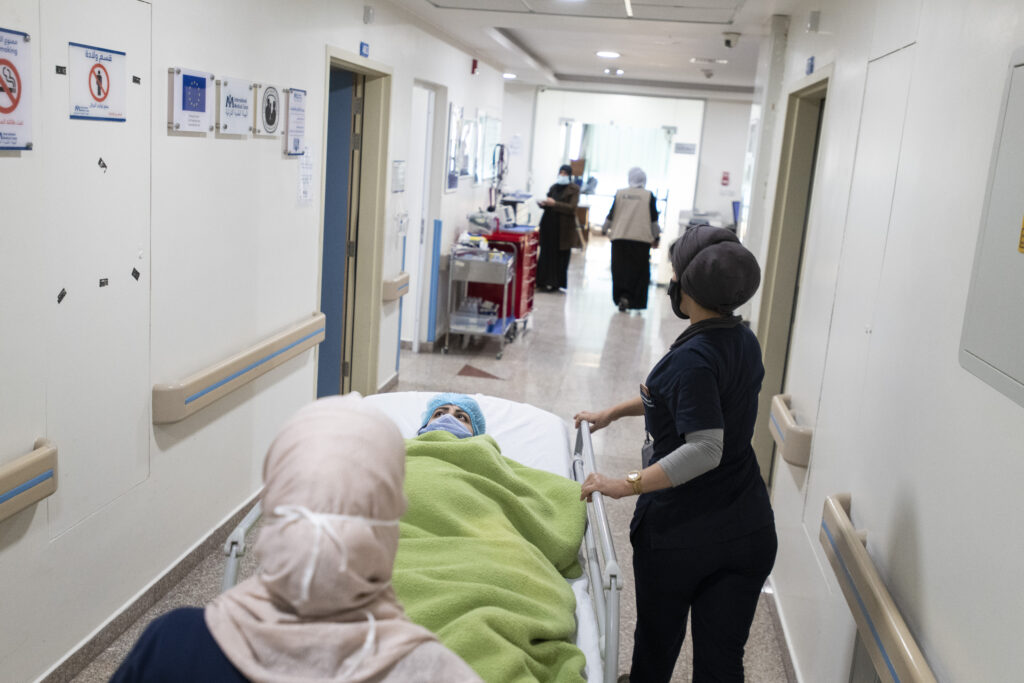
The majority of Syrian refugees in Irbid have fled the city of Dara’a, a former Syrian opposition stronghold where the conflict first erupted. Still fearing the Assad regime, most of them don’t want to return to Syria and instead now call Irbid their home.
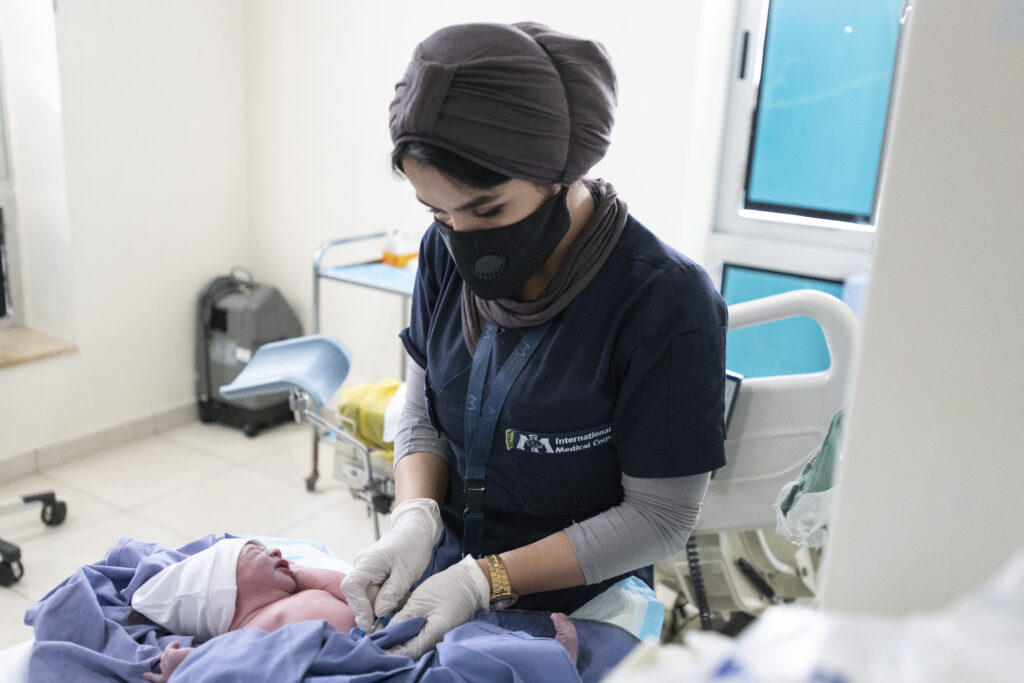
Most maternal and newborn complications occur during and immediately after labor and delivery. Skilled birth attendants can change that, which is why International Medical Corps is focusing on increasing the number of births assisted by trained midwives in some of the world’s toughest humanitarian emergencies.
Saving the Lives of Premature Babies at the NICU
At Irbid Hospital, we also care for critically ill and premature newborn babies at our newborn intensive care unit (NICU).
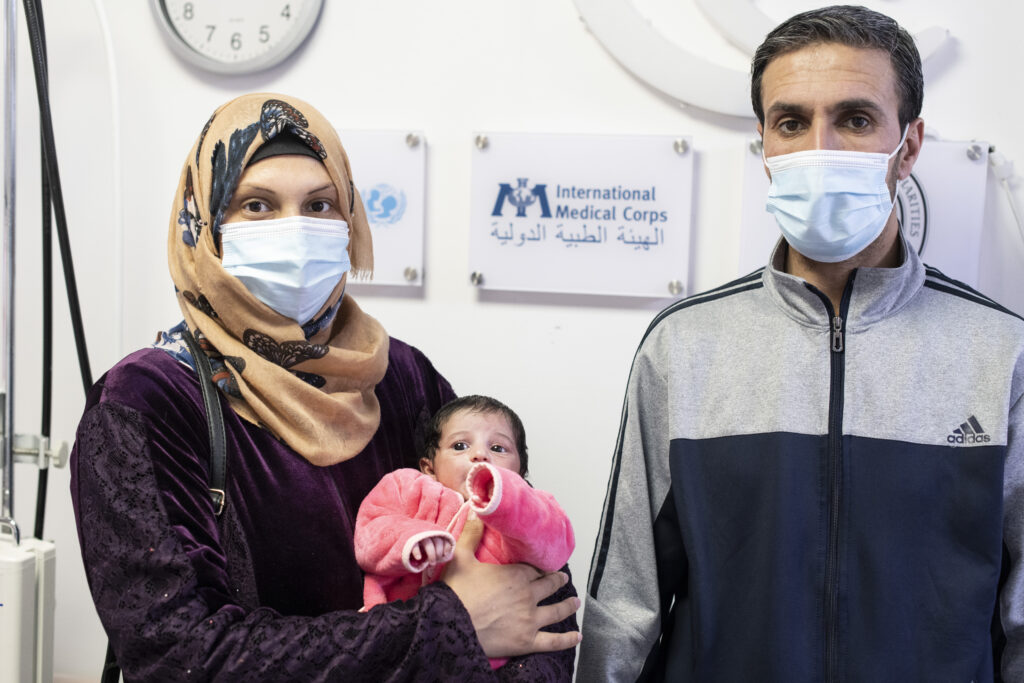
An estimated 1 million children have been born as refugees in neighboring countries since the war in Syria began.
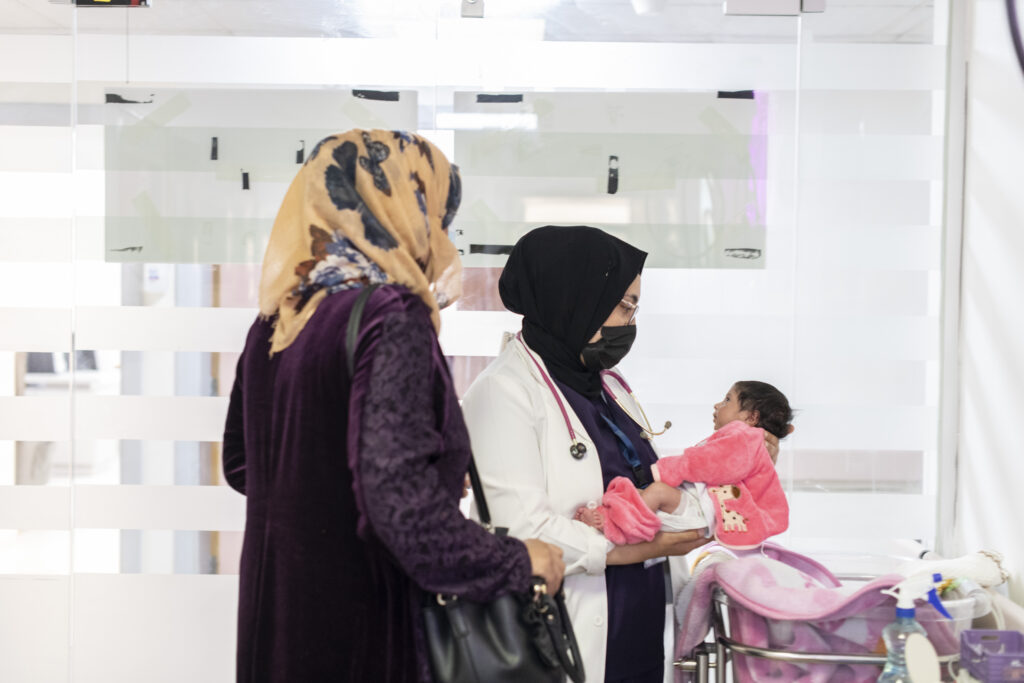
The Syrian conflict has been raging for more than a decade, with millions of children knowing nothing but war and displacement.
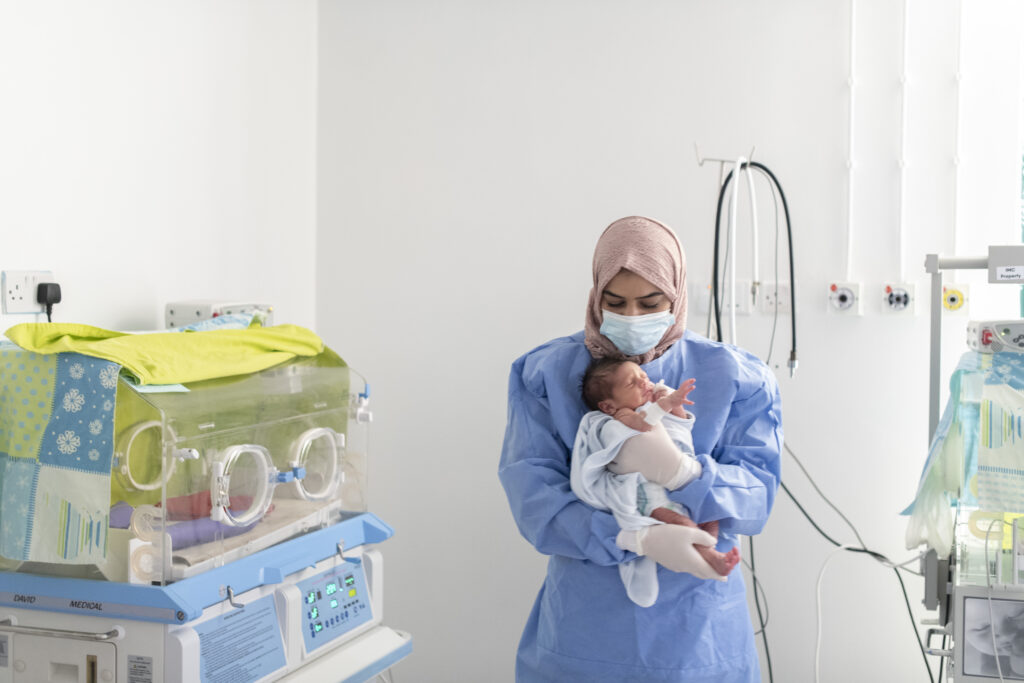
Nearly one in three children living outside their countries of birth are refugees; for adults, the proportion is less than 5%. Child displacement is at a record high.
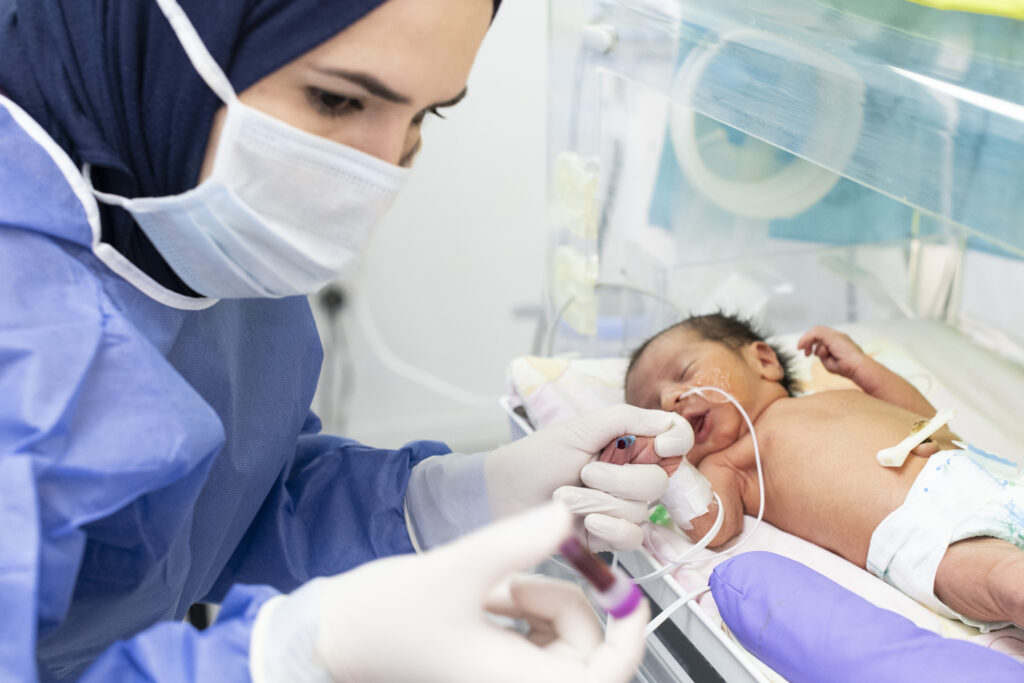
The world suffers from an alarming shortage of health workers. According to the WHO, we will face a global shortfall of 18 million health workers by 2030, primarily in low- and lower-middle-income countries. International Medical Corps is working hard to fill that gap.
A Foundation for a Healthier Future
Women, girls and children face some of the biggest challenges in humanitarian emergencies. Access to sexual reproductive health services is no exception. Though maternal and newborn deaths are rare in high-income countries, women facing war, disaster and displacement, as well as extreme poverty, face a different reality altogether.
Although important progress has been made in the last decades, several hundred thousand women still die during and following pregnancy and childbirth. This tragedy is as unacceptable as it is entirely preventable. Most maternal and newborn deaths are entirely preventable if women—no matter where they are born or live—have equal access to maternity care and safe motherhood.
But simply surviving pregnancy and childbirth shouldn’t be our goal. Reproductive services don’t just save lives; they increase well-being among mothers and their babies together, laying the foundation for a healthier future for their families and the community at large. In this sense, safe motherhood is a prerequisite, a building block, for a world where we can all prosper.
International Medical Corps can support women and their newborn babies in Irbid thanks to generous funding from EU Humanitarian Aid.
Want to learn more about our work across the world? Sign up to receive occasional emails from us and, together, we can empower people across the world, giving them the support that we all deserve.
